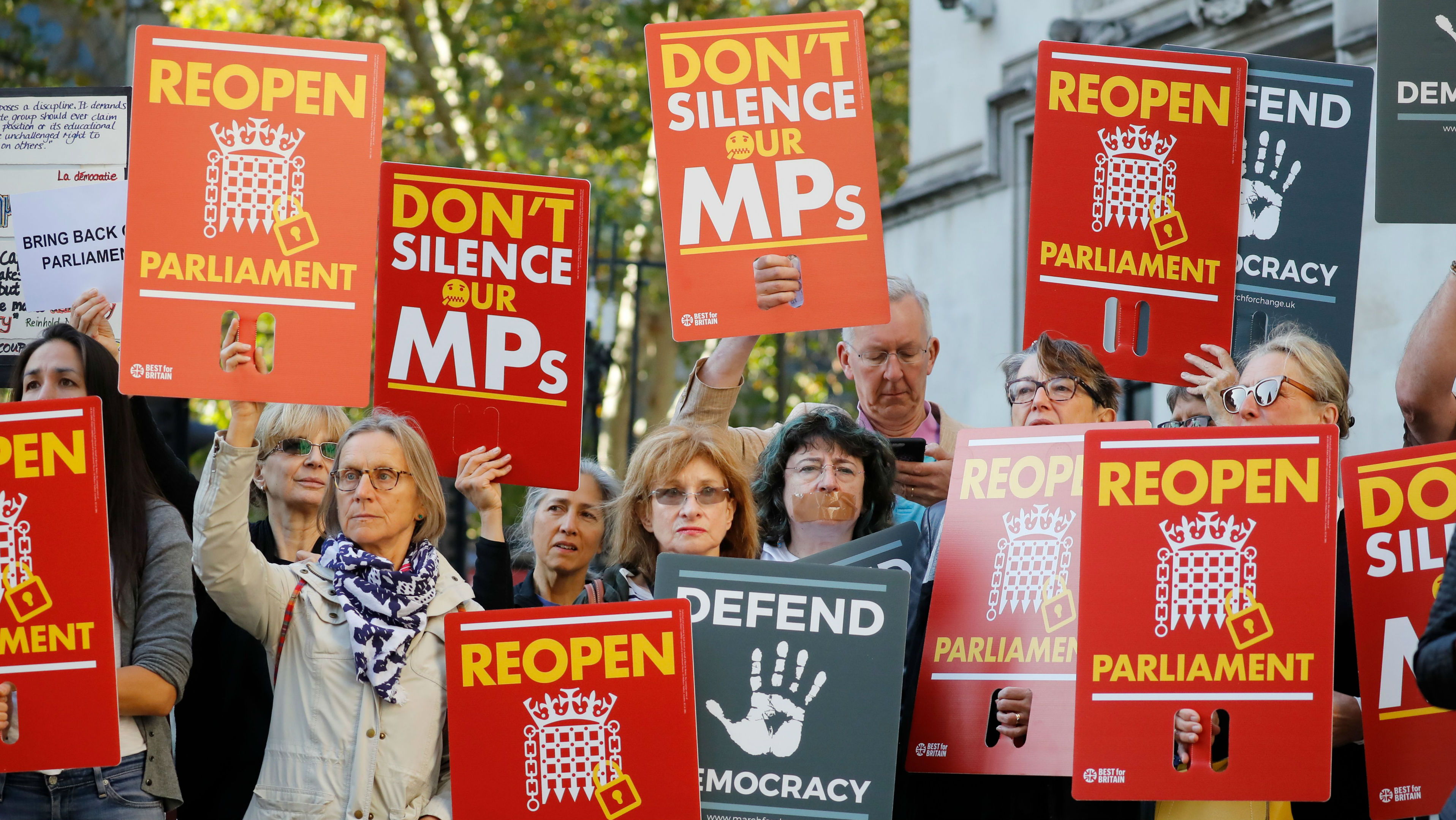Is it time for a written constitution in the UK?
Supporters of the proposal say we can no longer rely on rulers to be ‘good chaps’

A free daily email with the biggest news stories of the day – and the best features from TheWeek.com
You are now subscribed
Your newsletter sign-up was successful
Calls are growing for a codified British constitution as the battle between government and Parliament over Brexit plays out in the Supreme Court.
The upcoming ruling on whether Boris Johnson’s prorogation of Parliament was unlawful has been described as one of the most significant for constitutional law in the past century.
Several Remainer MPs have described the prime minister’s decision to suspend the House of Commons in the run-up to Brexit as a “constitutional outrage”, but his supporters have dismissed the claim, pointing out that MPs have been sent home for only a week longer than usual.
The Week
Escape your echo chamber. Get the facts behind the news, plus analysis from multiple perspectives.

Sign up for The Week's Free Newsletters
From our morning news briefing to a weekly Good News Newsletter, get the best of The Week delivered directly to your inbox.
From our morning news briefing to a weekly Good News Newsletter, get the best of The Week delivered directly to your inbox.
“The debate over constitutionality is fascinating and important. But it is also absurd because we have no written constitution,” says Adam Wagner in the New Statesman.
“Instead, we have a hodgepodge of procedural rules, ancient customs, conventions, norms, and the Queen’s obscure power-not-power. We have airy principles.”
As a result, in times of deadlock, it is easy for both sides to justify their arguments.
“The Brexit crisis shows we cannot go on with an invisible constitution. It’s high time we wrote it down,” Wagner concludes.
A free daily email with the biggest news stories of the day – and the best features from TheWeek.com
This view is shared by James Moore at The Independent, who says it is “no wonder” that people are calling for a written document.
“Our system rests on the assumption that our rulers will be ‘good chaps’ and work within the boundaries of longstanding convention. This they have largely done. Until now,” he says.
However, while a written constitution is a good idea, it is not a “panacea”, Moore warns. For evidence just look across the Atlantic, he says, adding: “If bad people have the will, they can do bad things regardless of whether they live under a written or an unwritten constitution.”
–––––––––––––––––––––––––––––––For more political analysis - and a concise, refreshing and balanced take on the week’s news agenda - try The Week magazine. Get your first six issues free–––––––––––––––––––––––––––––––
Writing in Prospect magazine, Adam Tomkins also points to the US, to argue that a written constitution would do more harm than good.
He asks: “Have the constitutionally entrenched views of 18th century slave-owning American men served the modern United States well in terms of gun control, the commerce clause, or the power to use military force?”
Tomkins says that such a document would “freeze our prejudices in entrenched law” and “bind future generations to obey us”.
“I love the British constitution,” he continues. “I love its secure adherence to ancient principles. And I love its endless ability to adapt those principles to new needs and circumstances. Long may its progress continue, unhindered by lawyers and their strange desire to write everything down.”
The Guardian’s Jemma Neville calls for a “living document with the flexibility to be interpreted as the world changes” and suggests that the “drafting process itself could prove a useful tool for pulling the country back together”.
“We need to get our house in order,” she says. “That begins with a hopeful and declaratory vow to one another – a sort of post-Brexit truce or social contract – in the form of a new constitution.”